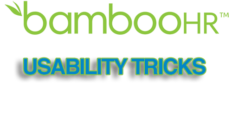Which CRM should I choose? Agility is key to sales and can put your business ahead of the competition. And the most agile CRM solutions today tend to be SaaS or cloud-based and they can adapt to both small business and enterprise needs. That’s why these solutions are also often a varied lot. It’s easy to get overwhelmed with choices: basic or complex, general or vertical, modular or end-to-end, standalone or integrated, cloud or on-premise or hybrid, free or paid.
But while large enterprises have their tech teams and consulting agencies to guide them when choosing the right CRM, small and medium-sized companies are often left with only intuition to light the path for them. This guide aims to help you solve that pain point.

We’ll help you decide which CRM software should you choose by helping you evaluate:
- What are your CRM goals
- What are the CRM software features you need most
- What other CRM software features you should consider
- Which solutions you can try to jumpstart your CRM stack
At the end of this article, you will have a clearer picture of your needs that will point your product purchase journey to the right direction.

Even as it matures, CRM is still one of the fastest growing B2B application segments by function in the enterprise sector. (source: AppsRunTheWorld)
Investing in CRM software tools is one of the most important strategic decisions you’ll make. It’s not easy (and advisable) to switch platform midway, so getting it right for the first time by avoiding common CRM mistakes is critical.
Ironically, the first step to find the right CRM is not to look at the platform, but at your sales processes. Are they ready for CRM automation and streamlining? This ensures you’re shopping for features that your team will use and only need. In Forrester’s Define Your CRM Plan report, one of the major premises is: you need to “lay the foundation for success before creating your CRM strategy.”
So, ask yourself first if you need a CRM software.
Do I need a CRM software?
Even before you start looking around for the different CRM software you should evaluate your needs first. Maybe you need a customer experience management (CEM) software but do understand the distinction between CRM and CEM. Both are important in understanding your customers and can easily complement each other. If you have to prioritize, get a CRM first and CEM next.
But back to the main question and let’s be clear about your needs — ask yourself, do I have any of these problems?
- Long sales cycle
- Customers need time to decide on your offer
- Customers regularly interact with your employees on different channels
- It’s difficult to find customer data
- Data is getting out of hand
- Limited visibility on your reps’ performance
If you answer yes to any or all of these, without a doubt you need a CRM software.
While all CRM software solutions aspire to help you get more leads and more conversions of these leads, they differ in how they achieve this. It’s the how in CRM software that you need to look closely at.
- How do the features help me?
- How does pricing impact my budget?
- How does its deployment suit my capabilities?
- How does it integrate with my other systems?
By asking these questions you’re looking at CRM software from your own perspective and not base your research just on vendor capabilities. This is the first step to answering the question of which CRM should I choose wisely.
To further dig up your perspective, try to figure out the following scenarios…
How is your sales process configured?
Many CRM solutions are packaged by business size to match how their clients’ sales process is set up. For instance, there are some CRM solutions ideal for small business, while others are CRM enterprise systems designed for large organizations.
So, be aware if you have a simple or complex sales process, as deterrent to being swayed by impressive features you don’t need. You may ask these questions:
- Are your sales workflows simple or complicated?
- How is sales integrated with marketing or other teams?
- Do sales reps report to you directly or are they a part of multiple sales teams, each with its hierarchical structure?
You’ll notice too that some solutions like HubSpot CRM scale to both small business and enterprise needs. So, it’s important that you look into the next few years and gauge how your sales process will evolve. Your CRM solution should grow with you.
For example, you can start with HubSpot CRM to just to organize your contacts, but in a year you might want to adapt it to creating a full sales pipeline. As your data builds up, you might want to create persona segments and launch campaigns and add more analytics to gauge ROI. HubSpot will allow you to do all those things, but it might not be the case with every CRM, so pay attention to your future plans
Takeaways:
- If you have simple sales process go for small business CRM.
- If you have complex sales process go for enterprise CRM.
- In many cases, it’s best to invest in a scalable solution like HubSpot CRM, which scales to your needs as your business grows.
Tip: To quickly start your product research you can refer to our detailed top 15 CRM guide. It’s a good investment to build your CRM growth stack and future-proof your data as your business expands.

Whether you have basic or complex sales pipeline, HubSpot CRM can easily adapt to it with configurable sales stages and properties.
What are the priority CRM features I need?
Once you’ve figured out why your sales process is off, it will become clear which CRM features you’ll need. A large enterprise can easily opt for an end-to-end solution, but a startup or growing business has to thread a thin line between functionality and budget. This is where your priorities kick in. Many CRM solutions are scaled to the capabilities of their feature set.
Must-have CRM features for small business
Even if you have a small sales team, it’s recommended that you start at the right footing. That means organizing customer data, having a clear sales pipeline, knowing the details on your deals and automating basic tasks. This will help you achieve accurate sales forecasting and close more deals. These are the essentials you’ll need in CRM software:
- Contact management. Organizes your customer data, at the least, places them in a centralized database. Usually, the basic plan starts with a cap on number of records and users and basic filtering.
- Sales pipeline. CRM is all about visibility on your deals. Among its basic functions, the sales pipeline helps you see the value of deals, where they are in the sales stage and who’s handling which deal.
- Deals. Enables you to enter data like value, contacts, status and person in charge.
- Automation. Some of the basic automation you need include tools to track customer interactions, schedule email follow-ups, log reps’ activities and sync records.
- Alerts and notifications. You’ll also need the ability to set rules for alerts, such as for follow-up calls or emails, appointments and tasks.
- Basic integration. At the least the CRM should enable you to attach files, sync with popular emails like Gmail and Outlook, import/export standard file formats and access popular social networks for brand mentions and public profiles.
CRM features useful for larger businesses
If you’re a large enterprise you’ll need more sophisticated features, but that means premium plans. In general, higher CRM plans offer more sophisticated tools and also come with higher data cap and wider user access. For instance:
- Contact management. Smart search, automation including instant field entry, association with relevant data, real-time updates and customer segmentation.
- Sales pipeline. Advanced features like probability of closing rates, customization, multiple pipelines
- Email templates. Out-of-the-box templates for a variety of sales letters.
- Document management. An integrated file manager to centralize sales documents for quick sorting, sharing and access.
- Call center. Integrated phone that lets you place calls straight out of the CRM interface.
- Reporting. Custom reports, more graphical options to visualize data, sales forecasting
- Analytics. More powerful tools to slice and dice your data
- Integrated marketing features. Lead nurturing, predictive lead scoring, web forms, landing pages and campaign integration.
Takeaway: Make sure the CRM feature set matches the size of your sales operation. That usually means startups and small businesses subscribe to the basic plan and only move up to higher plans when their requirements grow. Nonetheless, no matter how small your sales team, it’s best to start with baseline features to optimize the benefits of CRM. For large-scale operations, enterprise-grade CRM solutions are the best choice.
Tip: Some basic CRM plans are free. After evaluating a bunch of these plans, we found out that HubSpot CRM isn’t only the best entry option, but it comes with full features you’d expect from a higher plan, so it’s a great starting point. You can sign up for HubSpot CRM free app here to immediately test their features).

As an enterprise CRM HubSpot has robust analytics to dig deeper into your sales performance.
What are the other useful features I may need in a CRM?
Even as you cherry pick the CRM’s key features you should also keep in mind its other aspects. These include ease of use, integration, support and pricing. All these will have an impact on your CRM’s ROI.
Ease of use
This ensures the CRM will be actually used by your sales reps. You can quickly find out if the platform is intuitive by checking these benchmarks:
- Dashboard is neat and easy on the eyes
- Tools are accessible from almost anywhere you are in the system
- You can customize the CRM to your workflows
- You only need a few clicks to enable a tool
- Many processes can be automated
- Smart help tool that can predict what you need
- Plenty of video tutorials
Deeper integration
Most CRM solutions work smoothly with popular business and productivity apps. These include cloud storage, email client and document management. But not all CRM solutions have the following extensive integrations, so pay a close attention to these where they’re applicable to your needs:
- Social media for brand mentions and public profiles
- Help desk for customer queries
- Marketing automation for campaigns and leads
- ERP for sales data synchronization across other business processes
- API for deeper customization
Support
This indicates vendor reliability. There’s a misconception that the more support channels the vendor has, the better. It isn’t always the case.
To begin with, if the CRM solution is intuitive, you’ll have little need for support. So, multi-channel support may not be a deal breaker. What you need at the basic level, though, is a robust knowledge base of best practices. Consider a vendor with an active and robust knowledge base like the HubSpot community sharing best practices and tips. This gives you a layer of assurance that the vendor is reliable and in touch with its user base, plus, of course, you get to learn from other users’ experiences.
Pricing
No doubt pricing is a major factor when shopping around for CRM software, but it shouldn’t be the deciding factor. Your business is not built on how much it saves, but how much it gains. Hence, it is best to evaluate CRM software around ROI, specifically, the one with the best value for your money. For cloud CRM, consider your situation when deciding on pricing.
- Monthly plan – if cash flow is tight, a monthly plan may be appropriate. This ensures your budget is not stretched thin.
- Annual plan – if you can afford to advance payment this plan rewards you with significant savings.
- Free – if you’re short in cash or unwilling to commit it yet but want to get your sales team up to speed in CRM. Free apps are also a good practice run to assess how CRM can work for you.
Should you choose a free CRM software?
A free CRM may seen very attractive. But can it deliver your CRM goals? If you look at the leading free CRM software solutions in the market today, many of them are pared down versions of the paid tool. Some lack mailer integration, deal funnel view, sales forecasting and custom settings or have a cap on number of users or records. All of these are important even at the basic level. They may be free, but if they limit your CRM actions. They’re not delivering the right value.
However, in our analysis of popular free apps, we found that HubSpot CRM belongs to a unique level. That’s because despite being free it has all the key features you’ll need to start building your CRM infrastructure. These include a visual sales pipeline, bi-directional mail integration, built-in mailer with email sequences, smart contact management and other tools commonly found in paid plans.
Consider using HubSpot CRM not because it’s free, but because despite of it, you get a fully feature set. That’s a healthier way of looking at free stuff, without compromising your goals. If you’d like to see how it compares to paid solutions in terms of features and flexibility you may take a look at this HubSpot CRM vs Salesforce comparison.
Takeaways:
- Look closely at ease of use and integration; they can be the deciding factor between two similarly featured CRM solutions.
- Evaluating pricing is not about savings, but value. A free CRM like HubSpot is appealing not because it’s free, but despite of it, you get all the essential features.
How to find the best CRM on the market?
Once you got your sales process and your priorities clearly set out by following our tips above, you can now start comparing your options. A good starting point is to check our CRM software rankings. Most of these solutions will match the growing requirements of small and medium-sized companies.
There are many ways to shortlist your choices, namely:
- Read product reviews for leads on the top solutions.
- Read user reviews to get a feel on how existing customers find the software.
- Once you narrow down your options to around five solutions, you can sign up for a free trial and explore the features. See how the tools actually fall in (or out of) place along your workflows.
Here’s something you can do if your sales team is just starting out on CRM, not just the software, but the principle itself: get a free CRM software.
At no cost to you, the freeware gets your sales team to practice CRM principles before you commit to paid plans. At the base level, your reps will learn to capture the important contact details, qualify leads using data, sort prospects in a systematic way and track deals in an organized manner. The free CRM trains your team to account for CRM practices and they’ll be ready once you invest in a premium CRM subscription later. If you want to try a highly recommended free CRM now you can easily sign up for the HubSpot CRM free app here.


























Leave a comment!